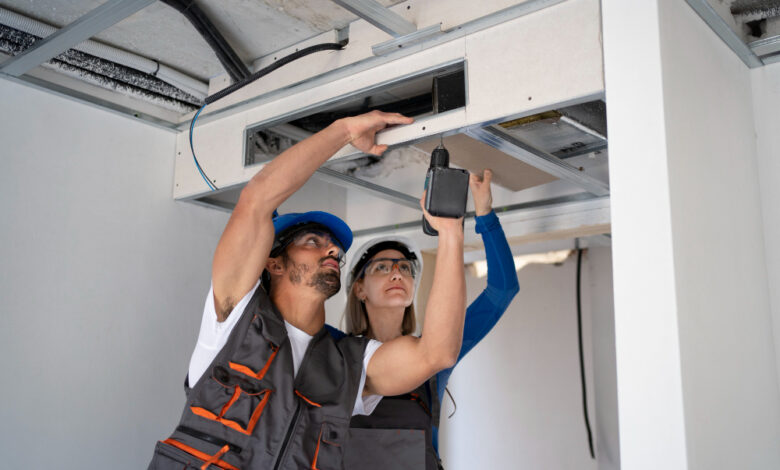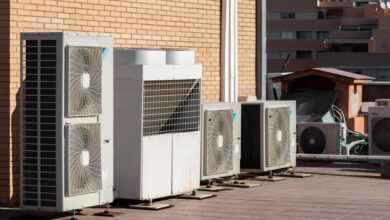Residential HVAC Installation: A Helpful Guide

Heating, ventilation, and cooling systems are essential in every home. They help maintain indoor air quality, manage humidity, and regulate temperature levels as needed, ensuring overall comfort year-round. That said, choosing the right HVAC system for your space is critical.
Whether replacing an existing system or installing a new one, it’s best to learn about your options and vital considerations to make more informed decisions. Here’s what you need to know before scheduling a residential HVAC installation.
Types of Residential HVAC Installation
Different residential HVAC Installation systems each have their features and benefits that suit varying needs. Below are some of the most commonly used ones:
Heating and Air Conditioning Split Systems
This is the most common HVAC system used in residential buildings. It consists of separate heating and cooling units located inside and outside the home and controlled by one thermostat.
A typical split system setup may include an air conditioner with a furnace or an air handler with a heat pump. These HVAC systems work by circulating air through ductwork, making them ideal for homes with an existing one installed.
Ductless Mini Split Systems
As its name suggests, a ductless mini-split system provides zoned heating and cooling without bulky ductwork. It’s composed of an outdoor compressor and indoor air handlers installed in specific zones of the home. These units can be controlled individually, allowing targeted temperature regulation and lower energy consumption.
Mini split systems offer easy installation and can be cost-effective for homes without existing ducts. Still, they can be expensive if you require multiple indoor air handlers to maintain indoor temperatures effectively.
Packaged HVAC Systems
This system combines both heating and cooling components in a single unit. It’s often installed on the roof or outside near your home and utilizes ducts to deliver regulated air.
Packaged HVAC units are compact, making them easy to install and maintain. Their size also makes them suitable for smaller spaces or homes without a basement, attic, or a spacious outdoor area for larger or separate heating and cooling systems.
Factors to Consider During HVAC Installation
Now that you know about some common residential HVAC systems, you might wonder how to choose the right unit for your home. To help you, here are some essential considerations:
Size
When choosing an HVAC system, it’s crucial to consider the ideal size for your space. Installing an undersized unit may cause it to run longer and use more energy to maintain indoor temperatures. Conversely, an HVAC that’s too large may cycle on and off more frequently, causing excess strain on its components. An expert can help you determine the right-sized unit for your home.
Energy Efficiency
An energy-efficient HVAC system helps ensure optimal performance while keeping utility bills low. So, when planning an HVAC installation, look for Energy Star ratings. This rating means the unit has met or exceeded strict requirements, making it highly efficient and safer for the environment.
Installation Location
Another crucial consideration is where your HVAC system will be installed. Avoid placing your outdoor unit where sunlight directly hits, as it can overheat and affect overall efficiency. Instead, choose an open, well-ventilated area to ensure peak performance levels and prevent potential issues.
Heat sources are also a no-go for indoor HVAC units, so steer clear of other appliances when installing them inside your home. A central, easily accessible location is ideal for efficient heating and cooling and easier inspection and maintenance. Talk to an HVAC expert to help you identify the best installation location.
Budget
HVAC systems have varied prices, so it’s best to set a budget to narrow your options. Note that cheaper units are not always the best choice, as they might not be of the best quality. While some HVAC systems may be pricier, their quality and features can be a more cost-efficient investment in the long run.
Get Reliable Residential HVAC Services Near You
With this guide, you can better prepare for a new residential HVAC installation. Still, there are other factors that might impact the suitability and effectiveness of a heating and cooling system for your home. Because of this, consulting an expert is most beneficial. Reach out to a trusted HVAC company to learn more.




